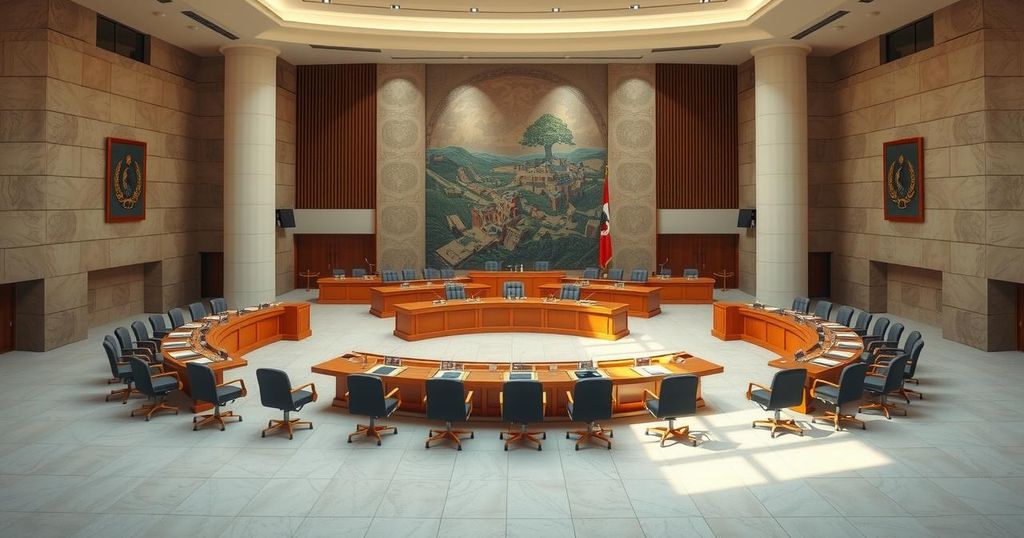South Sudan has implemented a curfew following violent attacks on Sudanese nationals amid growing tensions. At least three deaths occurred during clashes with police in Juba and Aweil, while businesses owned by Sudanese citizens were set ablaze. The unrest coincides with a humanitarian crisis in Sudan, prompting many to flee into South Sudan, which has led to intensified ethnic strife.
In response to a series of violent attacks against Sudanese nationals and their businesses in South Sudan, authorities have enacted a curfew in the capital, Juba, and the town of Aweil. The curfew, imposed from 6:00 PM to 6:00 AM, aims to restore order and prevent further violence. Reports indicate that at least three individuals have succumbed to injuries and seven others have been injured in clashes with law enforcement. Amid these tensions, Sudanese-owned properties faced arson attacks, highlighting escalating hostility against Sudanese traders. Police are actively patrolling the streets and have rescued 45 Sudanese traders, currently under their protection due to the surge in violence.
The context of this unrest can be traced back to the ongoing humanitarian crisis in Sudan, precipitated by internal conflict that commenced in April 2023. As half of Sudan’s populace—estimated at 25 million people—requiring urgent assistance, many are fleeing into South Sudan, which gained independence from Sudan in 2011. Historical prejudices tied to ethnicity have resurfaced amid the current conflicts, particularly against darker-skinned populations. Allegations of racially motivated attacks and historical patterns of violence highlight existing tensions within these countries.
Witnesses reported that the violent backlash followed the emergence of disturbing footage showing alleged Sudanese soldiers perpetrating violence against South Sudanese civilians. Outrage harbored by South Sudanese citizens ignited mass attacks against Sudanese-owned businesses. Sounds of gunfire echoed through Juba, as police personnel scoured the neighborhoods to restore order. A significant marketplace remains shuttered due to security concerns, with bread prices surging by 17%. Law enforcement continues to deploy personnel to safeguard Sudanese traders while pursuing those inciting violence. Eyewitness accounts also noted sporadic attacks beyond Juba, alongside public unrest in other towns.
The current violence in South Sudan stems from a confluence of sociopolitical issues, exacerbated by Sudan’s humanitarian crisis. Following the outbreak of civil conflict in Sudan, many individuals sought refuge across the border in South Sudan, thus intensifying existing societal strains. The situation has resulted in heightened ethnic tensions, particularly against the backdrop of historical grievances which have left deep-seated divisions. The recent violence, driven by reactions to reported atrocities, is merely the latest chapter in a long history of conflict between these neighboring nations.
The enactment of a nightly curfew in South Sudan is a direct response to escalating violence against Sudanese nationals amid a broader humanitarian crisis stemming from conflict in Sudan. As tensions rise, law enforcement is tasked with protecting vulnerable communities while attempting to restore public order. The situation highlights the fraught relationship between South Sudan and Sudan, characterized by deep-rooted ethnic rivalries and historical grievances that continue to influence contemporary interactions.
Original Source: www.bbc.com




